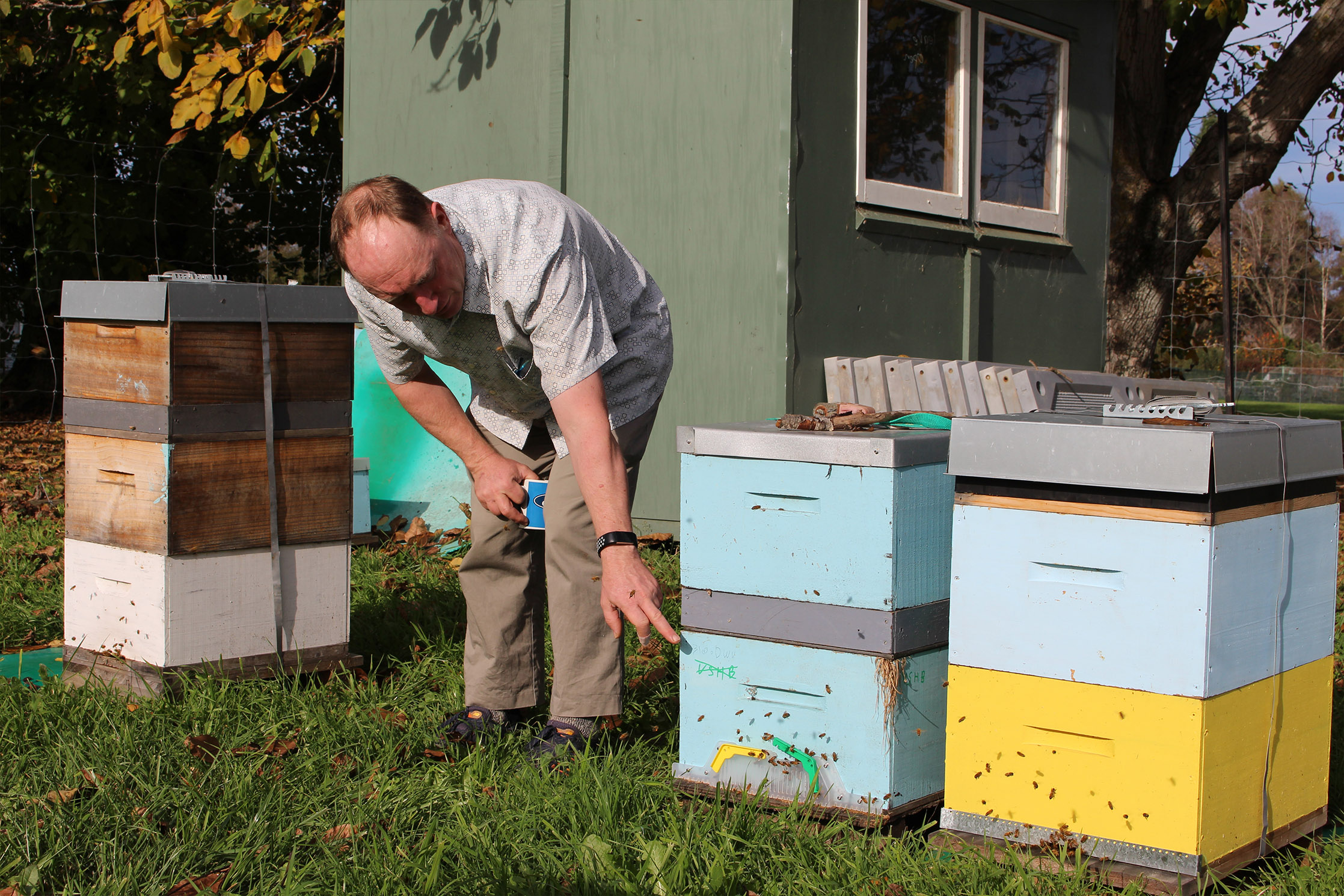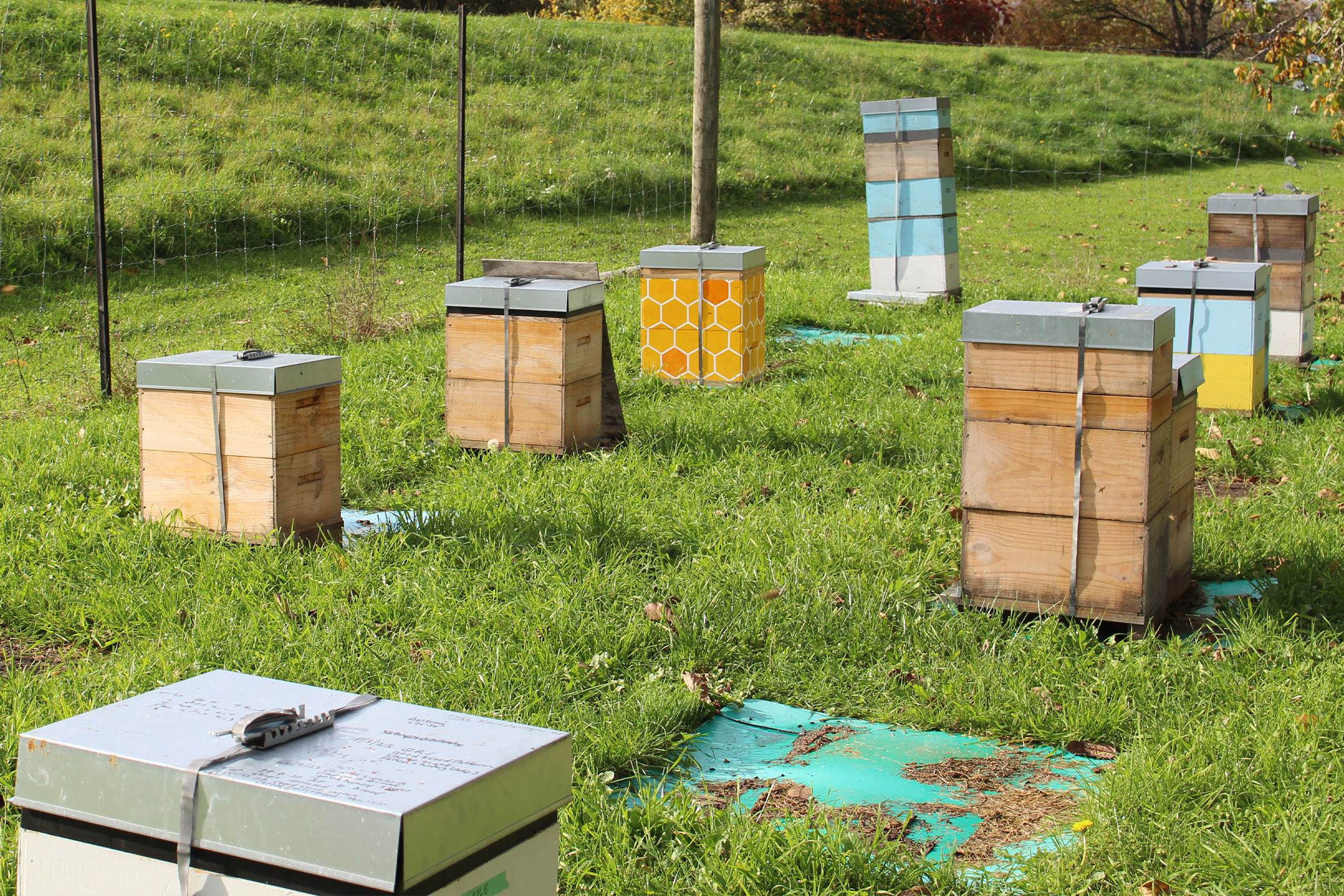A sweet opportunity

Together they completed the Level 2 New Zealand Certificate in Primary Industry Skills – Apiculture(external link) and have both now enrolled to study the Level 3 New Zealand Certificate in Apiculture(external link).
“Level 2 was a great taster - however we came away thinking, ‘wow there is so much to learn’. We both just want to learn more and appreciate the intricacies of these environmentally productive creatures,” says Jocelyn.
Jocelyn found out that each bee makes about 1.5 teaspoons of honey in their lifetime.
“That’s probably as much honey as you put on your toast in the morning!” she says.
During the hands-on programme, Jocelyn was taught if she treated bees gently and with respect, they would respond in kind.
“If I go slowly and steadily when I open the hive, the bees don’t get angry. The hum in the hive changes if they are annoyed,” she explains. “I have only been stung once and that was a bee from another hive sensing I was an invader.”

Sharlene’s father is a beekeeper in Picton, although he is downsizing and heading for retirement.
“It has been fascinating to learn how busy and industrious these small creatures are,” Sharlene says. “They respond to pheromones and quickly rally around should something change.”
Both Sharlene and Jocelyn agree that anyone with a quest for new learning would enjoy the Level 2 New Zealand Certificate in Primary Industry Skills.(external link)
“It's nice to spread a spoonful of honey from your own hive on your toast,” says Jocelyn.
The Level 3 New Zealand Certificate in Apiculture(external link) is for those interested in the apiculture industry, which is one of the fastest-growing primary industries in New Zealand, due to the international demand for mānuka honey and other beehive products.
With Saturday or Sunday bimonthly block courses, online modules and flexibility to study nationwide, anyone can get a buzz out of learning valuable new skills.
Learn more about the NMIT apiculture programmes(external link).

